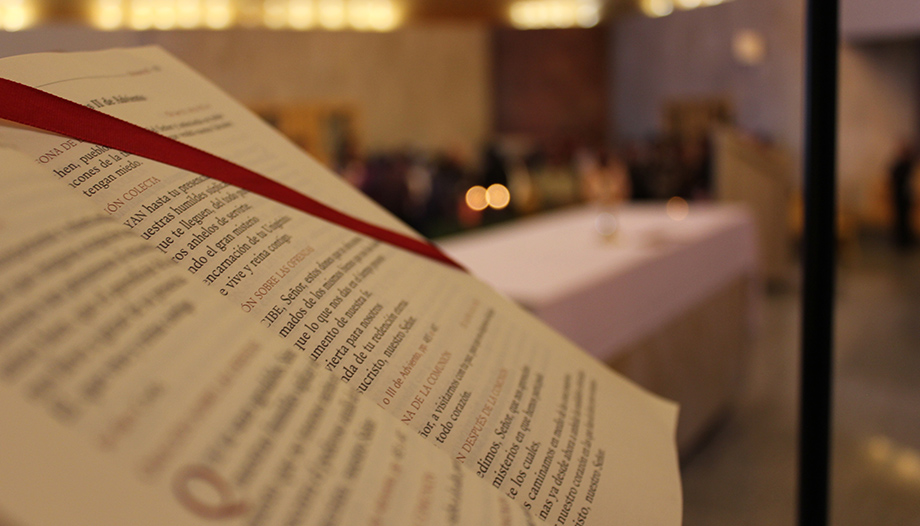We begin the new year under the protection of Our Lady, thanks to this beautiful feast of St. Mary, Mother of God. And the liturgical readings try to express this reality in different ways. The Gospel takes us back to Christmas by mentioning the shepherds who "found" the Holy Family in Bethlehem. The shepherds' haste - literally, "they went running"- contrasts with the peace of the child "lying in the manger". Likewise, their excited need to speak - they "told" what the angel had told them - and the "admiration" of those who heard it contrasts with Mary's calm contemplation, who "he kept all these things, pondering them in her heart." The shepherds go on their way "giving glory and praise to God".
Through this text, the Church invites us to begin a new calendar year with the contemplative spirit of Mary and the peace of the Child Jesus. He lies quietly, while others bustle and chatter around him, and Mary, as she hears and sees what is happening, looks on with loving adoration. Like her later namesake, "Mary has chosen the better part." (Lk 10:42).
Thus, the Church focuses not so much on Mary's physical motherhood as on her spiritual attitude. Like Jesus, she insists that Mary is great not so much for her biological motherhood as for "hearing the word of God and fulfilling it" (cf. Lk 11:28). As several Fathers of the Church taught, before Mary conceived Christ in her womb she conceived him in her heart. This is why we are encouraged to begin the year with a contemplative attitude. Rather than rushing off like Olympic sprinters, in a burst of activity, let us begin calmly and in a spirit of prayer. And a good way to do this is to consider our blessings, which is precisely what the first two readings and the psalm invite us to do.
The first reading, from the book of Numbers, speaks of Aaron and the Jewish priests, who bless the people. The psalm also implores God's blessings. And the second reading, from St. Paul's letter to the Galatians, helps us to consider the greatest blessing of all: that, through the Incarnation of Christ, we are offered the possibility of becoming children of God. Borrowing another bold patristic affirmation, we can say with St. Athanasius: "God became man so that man might become God." And both through Mary. We are made free: by the divine Maternity of Mary, who is also our Mother, we can exclaim: "Abba, Dad, Father!".
Activity is necessary, with all the family, social, professional and religious duties that our life entails: thus, the Gospel shows Mary and Joseph taking Jesus to be circumcised on the eighth day. But today the Church encourages us to begin the year not with activity, but with prayerful contemplation. We can receive no better advice than this.
Homily on the readings of the Solemnity of Mary, Mother of God (A)
The priest Luis Herrera Campo offers its nanomiliaa small one-minute reflection for these readings.









